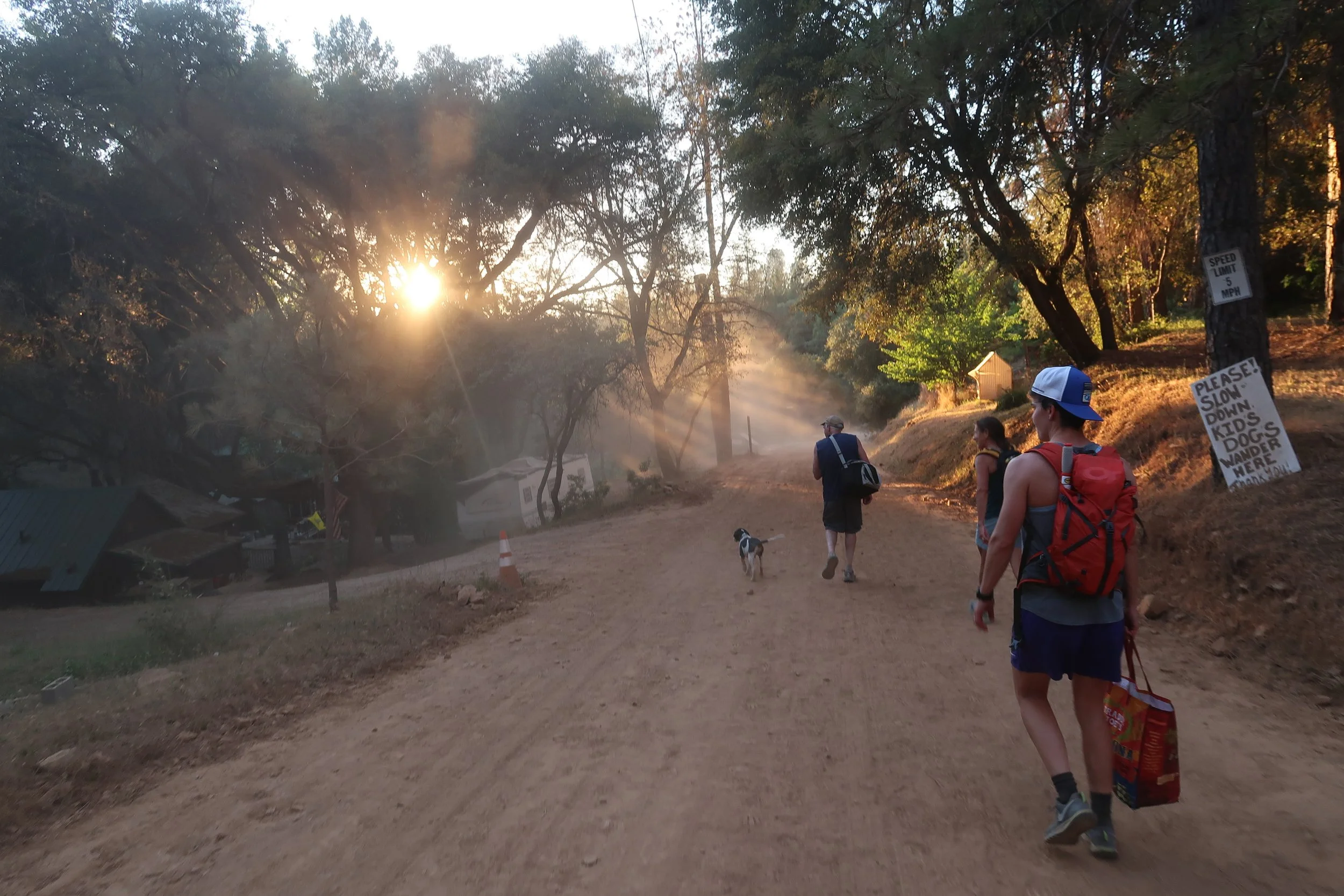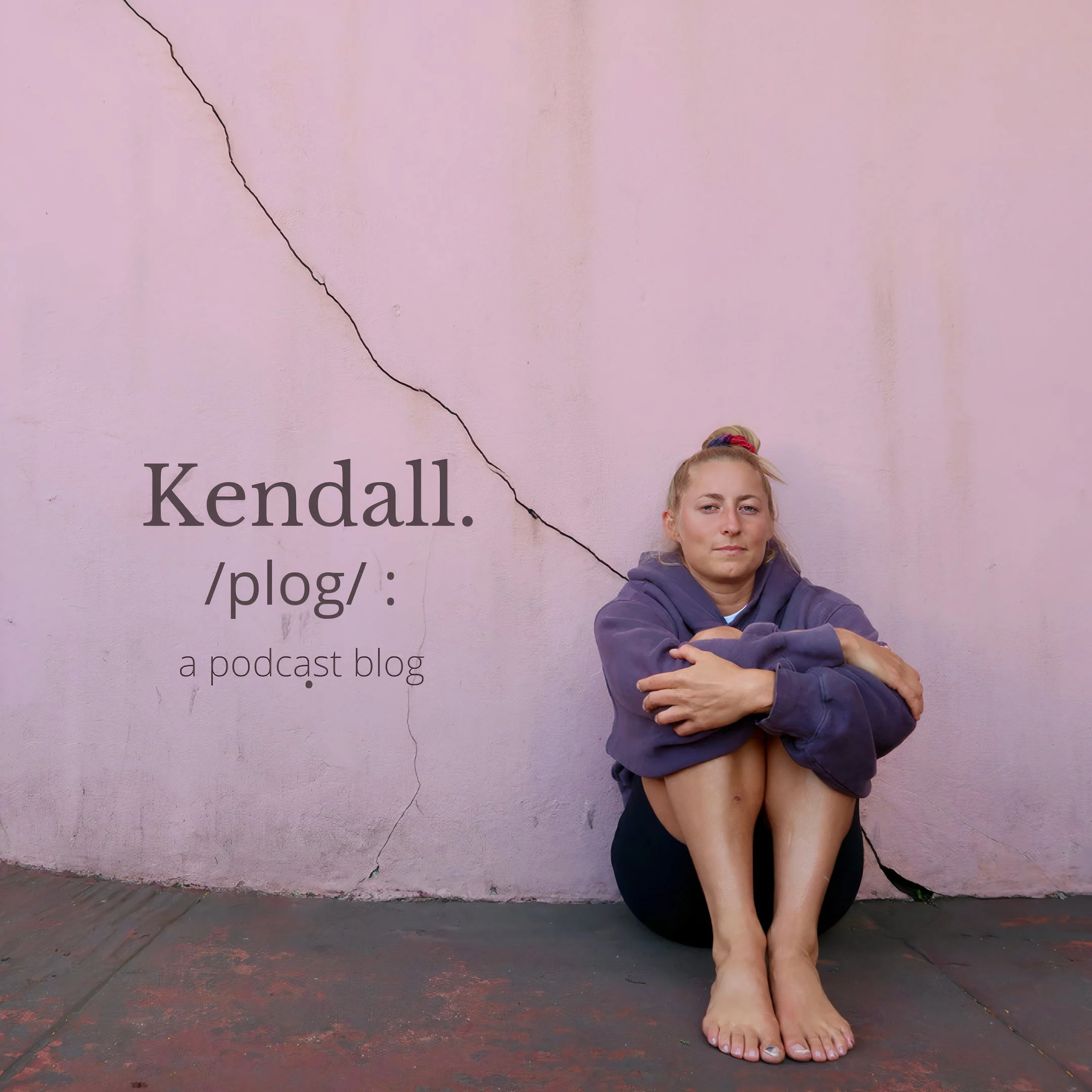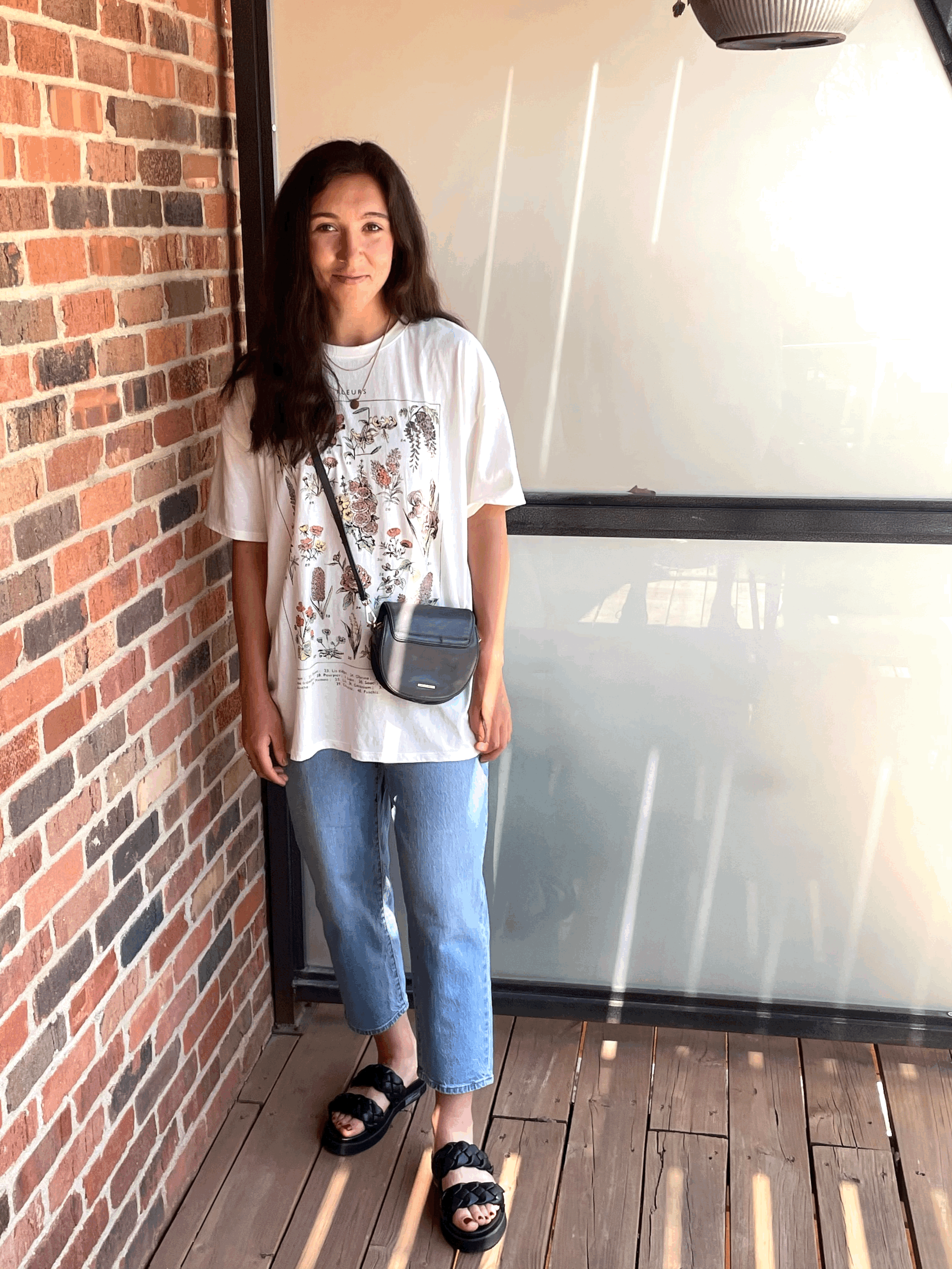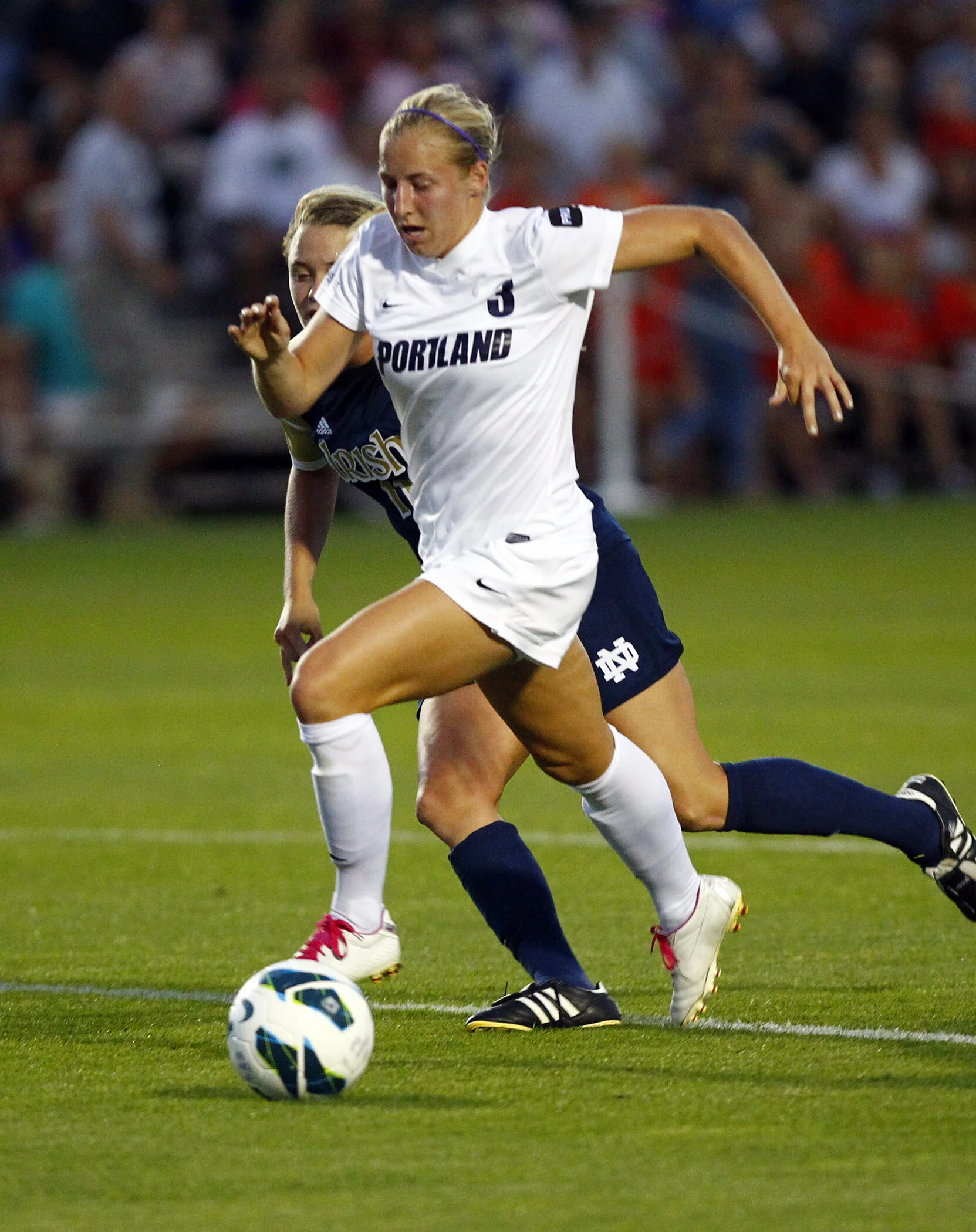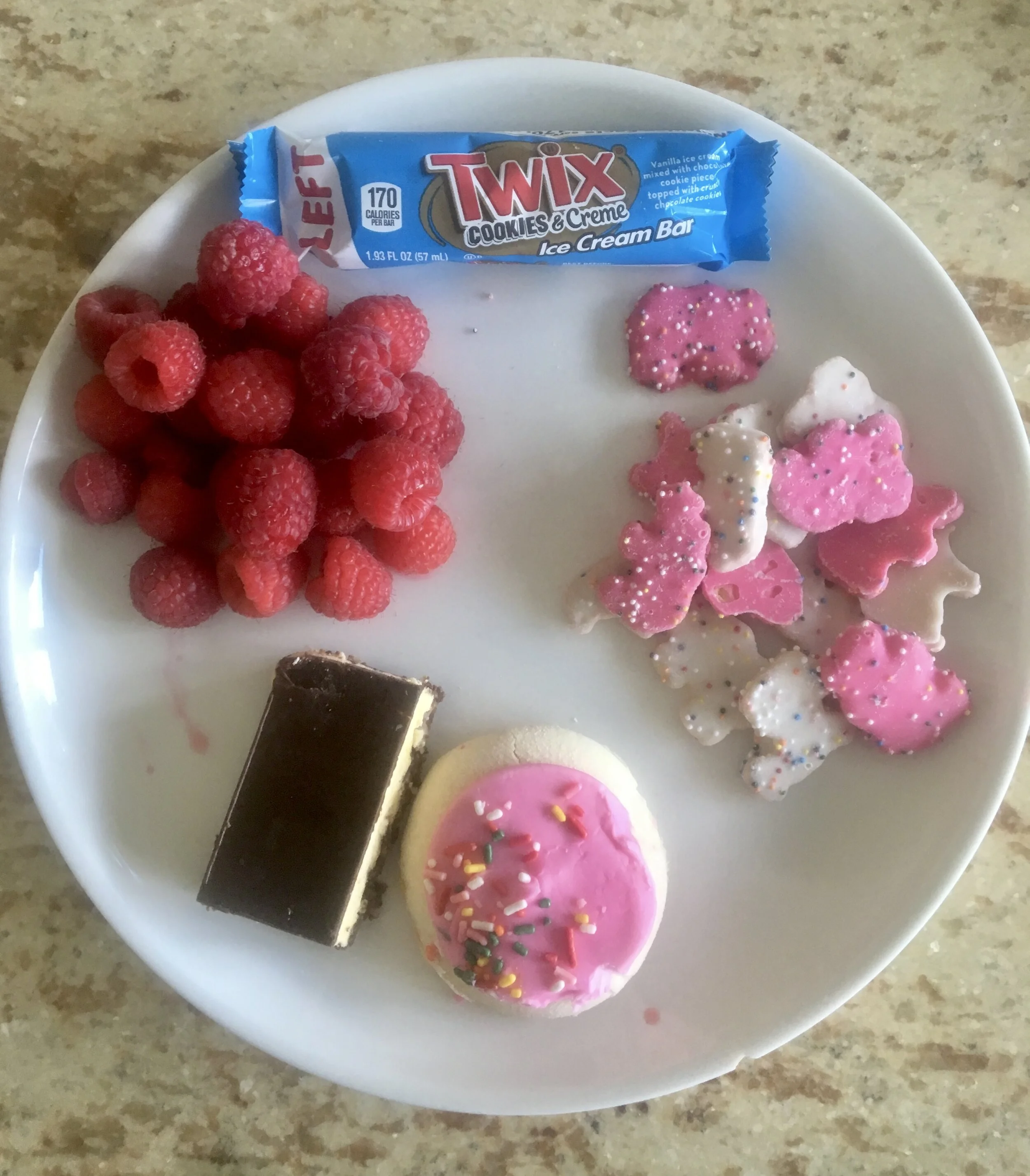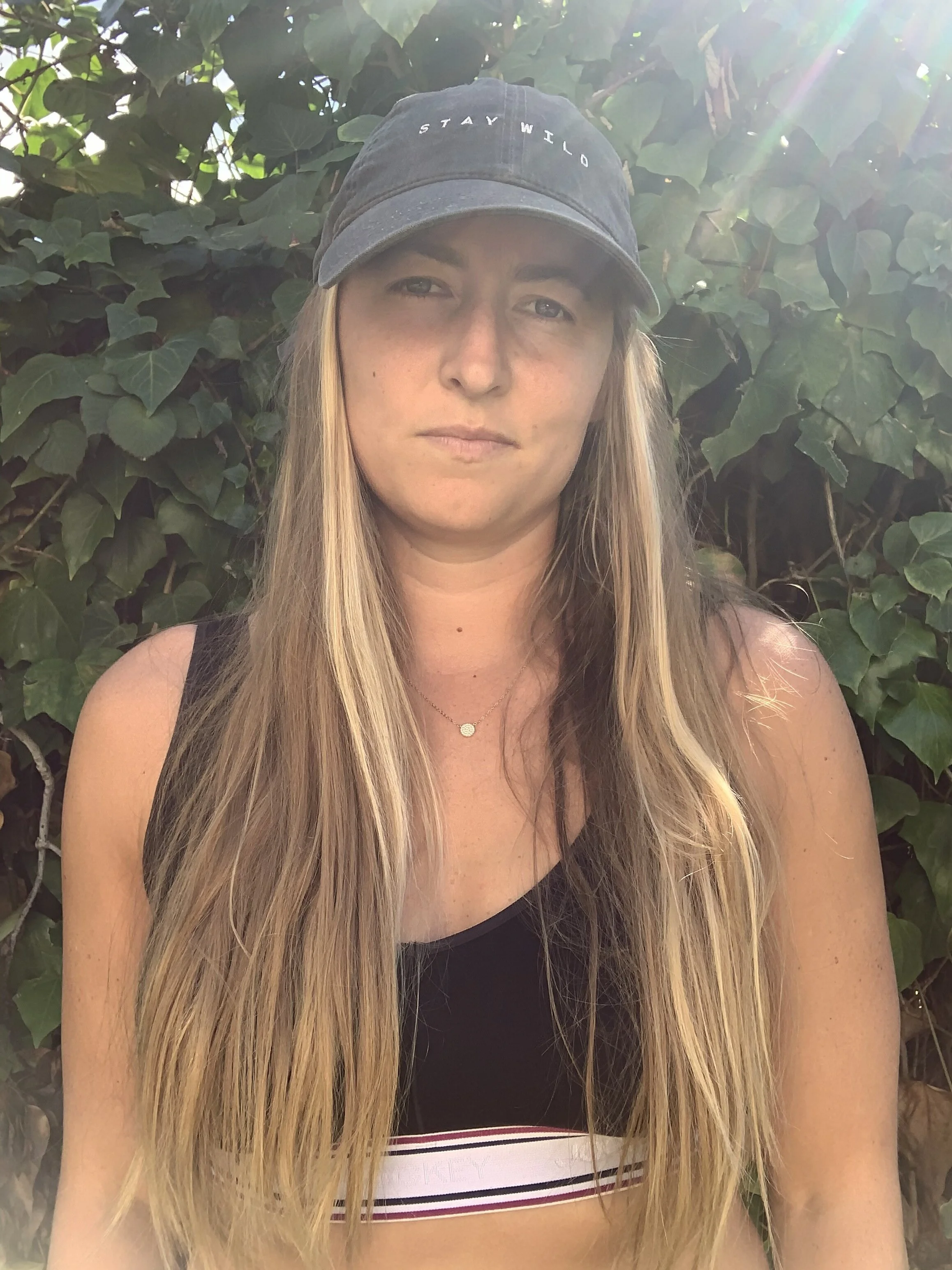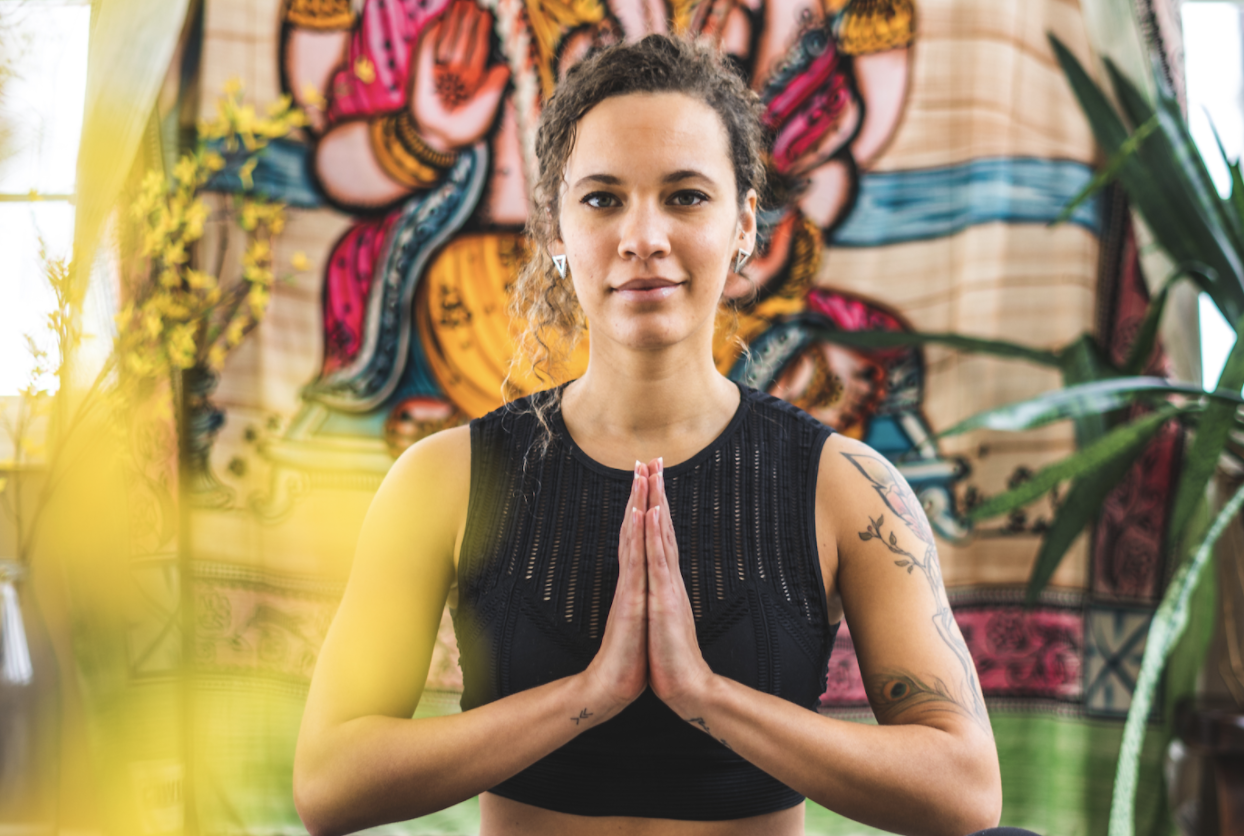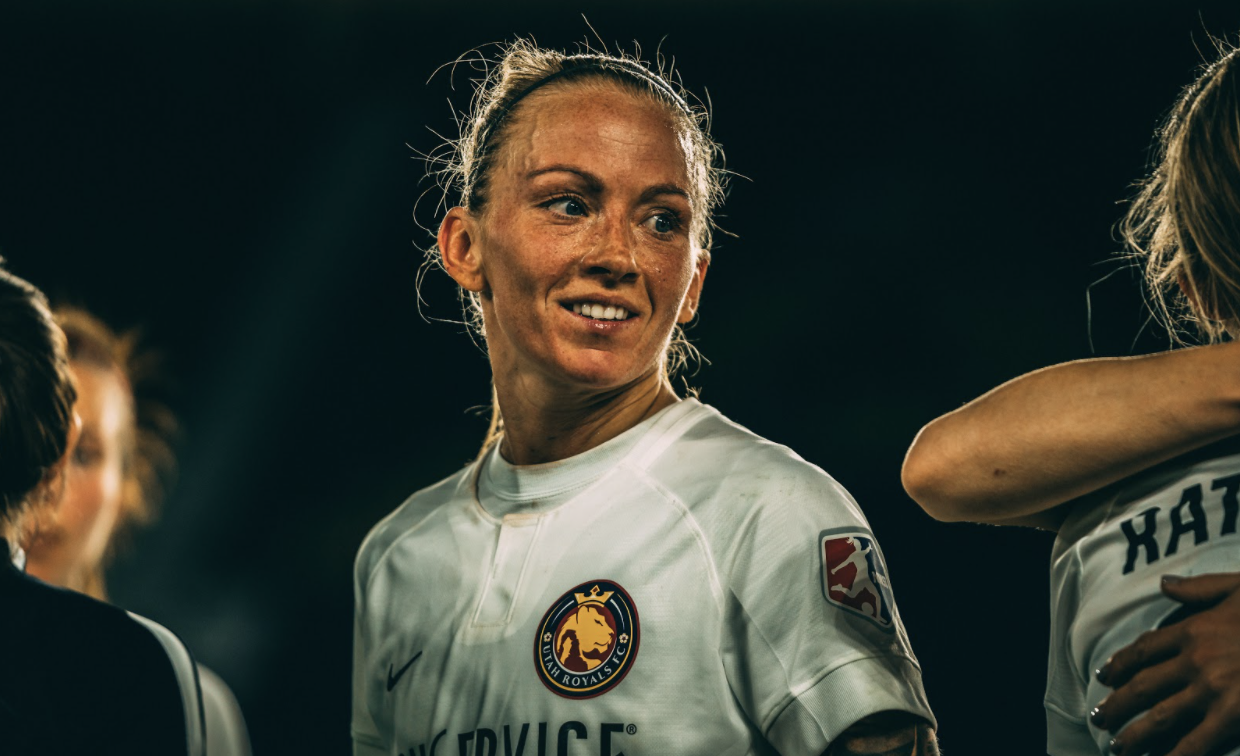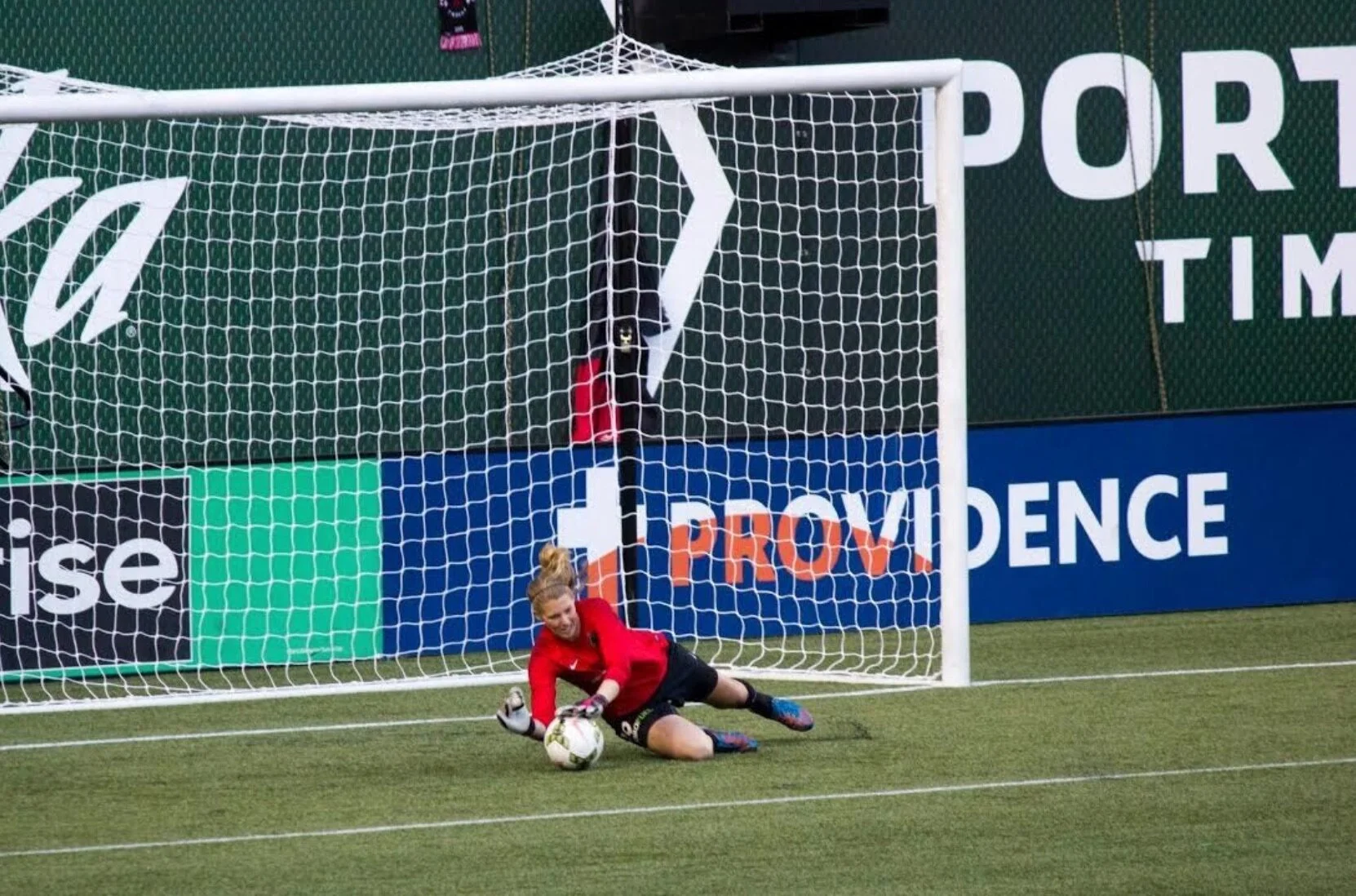There’s something comfortable about not knowing there’s a part of you that’s out of alignment or not working for you. You get to be naive and continue living your life per usual.
For me, as soon as my funky relationship with food was brought to my consciousness, shame flooded my body. I didn’t understand why I couldn’t stop my binging.
I was determined to stop the cycle. Again, willing to do anything. But, it seemed like the harder I tried, the more I binged. I felt broken and didn’t understand why I couldn’t fix the one thing I loathed about myself the most. I felt like a fraud. Every time I ate salads and “healthy” food around my friends I knew, no matter how hard I tried, there was a 87% chance I’d be heading out at night on a grocery store bender-devouring sweets up the wazoo. I hated being left alone because I didn’t trust myself.
But, I kept plugging away doing the best I could with what I knew, continuously searching for more tools and insights to heal.
Before, I share about the book that genuinely had the greatest impact on my entire life and got me to other side of my eating disorder, I have to acknowledge all of the work that I did beforehand that set me up for the book to have such a profound impact.
Every step and misstep was absolutely necessary for me to stumble upon lessons and deepen my connection to myself.
Here’s a list of some of the most impactful things that helped, before I found the book and way of eating that changed my life:
Recording voice messages to myself-anytime I wanted to express something I was going through, I’d pull out my phone and just release whatever thoughts and feelings were on my mind. Talking to yourself may seem like it would make you feel crazier, but it was wildly beneficial in me acknowledging where I was at, releasing whatever was ready to be released, and observing that all emotions eventually pass.
Eating Disorder Therapist-having a safe space to talk about what I was experiencing. At the beginning of my pursuit of recovery, it was so nice to have someone who I could word vomit to, without judgment.
Psychic School-a program that helped me to see how much of other people’s energy was in my space, and how to clear out what wasn’t mine. I took a year-long program that I’ll be talking about in detail in the future, but for now, I’ll just say that it helped me to clear enough energy to be able to connect to my truth and trust my path with food. I offer energy readings now. It’s so much fun for me. If you have an interest, please reach out :)
Somatic Work-based on the idea that stuck emotions are stored in the body. When we don’t know how to process our emotions (emotions=energy in motion), they stay stuck in our body. Any time we feel anxious in our day-to-day life, it’s often because the circumstance is triggering a stuck emotion in our body. When we feel triggered, some of us (especially those with complicated relationships to food and their body) may cope with food. This is a beautiful coping mechanism that keeps us safe from having to feel the really uncomfortable emotion.
Brainspotting- in the family of somatic work, brainspotting is an even more targeted way to address the root of our compulsions. For me, it helped me see that my obsession with food had so much to do with my desire for control, because my insides felt out of control from not knowing how to actually feel my feelings. I offer brain spotting sessions now too. They’re dope. If you have an interest please reach out :)
Breathwork-there’s loads of different types of breathwork out there. For me, a certain variety of holotropic breathwork was immensely helpful in me clearing out energy and working through emotions. (Bree Melanson is my my favorite breathwork practitioner. She sporadically offers group sessions and every time I leave feeling so much more grounded) Using our breath to heal seems too easy and good to be true, but I genuinely believe it's one of the most underrated healing tools we all possess (unless your dead, which I’m guessing your not if you're reading this, but if you are, that’s incredible and I’d love to meet you. Please email me and give me all the dirty deets about where we go when we die.)
All of these modalities essentially boiled down to me gaining trust in myself. It was me learning to communicate with my body and listen to it.
But, despite all this healing work, I still binged. It was upsetting and confusing. Like, do I really have more trauma to work through? More emotions to release before I can eat like a normal person? At this rate, it felt like I’d be doing this healing work until I had grey hairs growing out of my chin with little to show for it.
And then one day, The Book flew into my lap (I swear it was wearing a wonder woman cape) and changed my mutha fuckin life! No lie. Boom. Mic drop.
The missing piece of the puzzle for me was found in a book titled, none other than, The Fuck It Diet.
This book eloquently (in my view of eloquence, which has it’s share of F words) explains why I had done all this healing work and was still struggling with food.
When I found this omen, I had done enough research and connected with myself enough to know that dieting straight up sucks. Literally over 95% of diets fail.
Fuck that. Fuck that. Fuck that.
So why couldn’t I stop my binges, despite knowing that diets fail?
Back in the day, when people were literally just trying to survive, they would have to scavenge for food. When no food was available, they would go into a famine. When they found food, their body would signal “FOOD! NOURISHMENT!” Then, that person would eat as much as they could because they didn’t know when they were going to have access to food again.
That survival part of our brain is still very much a part of us today. So, when we restrict our food for long periods of time (aka dieting), whether it’s calories or certain food groups, our body thinks that it is going into a legit famine.
And because our bodies are dope and always looking out for us, they slow down our metabolism and other parts of our system to conserve energy. In this famine state, food will often be at the center of our attention, because are bodies are dope and always looking out for us, and they are letting us know we could use some food to survive. Then, when there is food available, because are bodies are dope and always looking out for us, they get loudddd and make us have strong cravings.
For example, when I was on the ketogenic diet (a diet that revolves around eating very high amounts of fat, and very low amounts of carbs), I was a savage squirrel when it came to nuts and nut butters. I could shovel down spoonfuls upon spoonfuls upon spoonfuls. I thought it was because I lacked disciplined.
Looking back, this nut craving was because my body was craving the carbs in the food because I was heavily restricting carbs. This was my body telling me, yo you need to eat more carbs! But, I ignored it, because I thought I needed to follow what the specialist told me to do. If I strayed off track, then I failed and I wouldn’t heal.
Bottom line, if you have been dieting on and off for a long period of time, and are still binging, then your body likely thinks it’s in a famine.
How do you get your body out of a famine state?
YOU EAT!
Not like a squirrel, or a bird, but like a deeply wise body that knows what it’s doing.
A brilliant point Caroline makes:
If you’re thirsty, do you say to yourself “oh no I shouldn’t be thirsty, I shouldn’t drink water. It’s not okay to do that”?
If you have to pee do you say “oh no, I’m going to hold it until I really have to go.”?
Ya, on road trips I like to torture myself and hold my pee for unnecessarily long periods of time, but other than that, no I don’t.
These are basic human biological needs. Hunger is a signal that our bodies need our basic human biological need of food to be met.
Our body’s know what they need. When we start blindly listening to other people’s advise about how to eat without checking in to see if it feels good to us, then we start losing trust with what our bodies want and don’t want. Our hunger signals get out of whack. We can’t tell when we are hungry or when we are full.
This information was really helpful for me, but this next part was the game-changer for me.
The author claims that the way she has helped tons of women heal their binge eating was to allow yourself to eat whatever you want, and (this was the big ‘aha moment’ for me) you allow yourself to eat AS MUCH as you want.
I feel like I’m typing with a lot of CAPS now because this topic gets me hyped. Not, sorry about it.
Allowing myself to eat as much as I wanted, IN WHATEVER QUANTITY, not in moderation, of whatever my body was craving was revolutionary for me.
The reason it was so massive for me was because of my hidden fat-phobia.
My desire to eat “well” had morphed into wanting to have a certain body type.
Why did I want to have certain body type?
Because our society idealizes this specific skinny body. We see it on magazine covers, movies, workout programs, weight loss stories etc.
This body type is engrained in our brain as the model of health.
I saw an instagram post the other day of all these different diets and a pictures of the people who created the diets, and I shit you not, they were all white men.
The same kind of white men who pay womxn less, make laws suppressing minorities, and silence our voices
These white men own health companies that unsolicitedly tell womxn what’s wrong with our bodies and shove diets down our faces.
If you’re fat, then you’re unhealthy and it’s not okay to be yourself until you fix it.
If you’re thin (a huge privilege), then it’s still not okay to be yourself until you lose those 5-15 nagging pounds.
And, if you happen to be the .0000001% of women who somehow fit the exact ration of thin, toned, and curly that the patriarchy currently deems as worthy, then your lips probs aren’t quite plump enough or your butt cheeks aren’t quite funky enough.
Once you “fix” your body, then you’ll be worthy of confidence and a lover and all the things you want.
It makes sense then, that most of us demonize people in bigger bodies. We view them as “unhealthy” and “undesirable.”
Caroline talks about how this desire to diet, very often has to do with this fear of getting fat.
She debunks a ton of myths about fat bodies.
She shares studies about how the BMI test has very little correlation to actual health and how it’s an overused, outdated measurement of health.
A concept that really sunk in for me:
everyone has an average set weight point.
this is the weight your body is designed to be at, is most comfortable at, and likes to chill out at. Some people are naturally bigger than others because they have a larger average set weight point. And that is healthy for them. When we try to squeeze ourselves into a smaller weight than our average set weight point, this is when the cravings and binges run rampant. We were never designed to be that size, it was just our society making us feel like we needed to look a certain way.
People often fear that if they let themselves eat whatever they want they are never going to be able to stop eating and are going to get fatter and fatter. This isn’t true. When you fully allow yourself to eat, your body eventually hits this point where it doesn’t get any bigger, and it then it begins to settle into it’s average set weight point.
Bottom line, you can’t tell if people are healthy or not just by looking at them, that goes for bigger bodies too.
When I read about fat phobia, something in me clicked. I did have a fear of getting “fat” (I put “fat" in quotes because I’m privileged to be in a thinner body and my view of my own fatness is deeply contorted).
Caroline explains that in order to heal from an eating disorder you really have to face your fear of being fat and question where this fear of fat even came from.
Growing up in the athletic world, there’s constant implicit and explicit messages about how athlete’s should look.
Go to social media and see someone with a picture posted in a sports bra with a flat, toned stomach, and you’ll see comments like “omg wash board abs”, “body goals” etc.
I am a proponent of celebrating all our bodies and also I believe that there is an over-emphasis and over-celebration of people who have the societally deemed acceptable body type.
I have this vivid memory from a U20 national camp. We were in a locker room getting ready for training and two girls were having a conversation about abs. One of them said that doing ab workouts is not a good thing because it makes your stomach bulge out and you look fat. My stomach has always been my most self-conscious body part. I remember thinking of my gosh should I not be doing ab workouts?
To overcome this fear, I had to:
Examine where these values around my body, fatness, and food came from. Questions I explored: Are the beliefs and thoughts I have about my body my own? If not, where did I learn this belief/where did this thought come from? I can guarantee you that if your thoughts are anything less than the fact that you are a god damn queen gracing the earth with your presence, then they aren’t yours. Something that was really helpful for me during this time was to follow people on instagram with bigger bodies who were confident/shining their light. This allowed me to dispel my fall belief that you have to look a certain way to be worthy.
Allow myself to eat as much as I wanted. No holding back. Not to rebel, but to communicate with my body that I trust it. That my body knows what weight I’m designed to be at right now. That if my body is indeed meant to be at a bigger size, then it’s for my greatest good to stop trying to change it. That there’s a reason I’m craving food.
It was time to surrender to my bodies innate wisdom and get out of this damn chronic famine state.
I want to emphasize that Caroline states that this way of eating is for people who tend to binge eat and NOT people who have anorexia or bulimia. Eating disorders are serious and really benefit form seeing a health practitioner or a therapist. TBH anyone could really benefit from a therapist (specifically, one that you vibe with, because there are tons out there that you won’t vibe with. Find your one).
Caroline really encourages going all in and fully committing to this way of eating. That can be really scary for people. Very understandably so. I don’t believe going all in is necessary for results. I have a friend who eased her way into it, slowly adding in foods that were “off limits” for her, and she found similar freedom on the other side. I am someone, like I mentioned, who gets high off of going all in. So I said “buckle up, let’s do this fucking thing.”
The beginning of allowing myself to eat whatever I wanted
The same day I started reading the book, I headed to the grocery store. I stocked up on everything my heart desired. Talk about a literal kid in a candy store. I was stoked.
Liberated. No longer bound by the food restrictions I arbitrarily placed on myself.
My first stop, obviously was the cookie aisle. My eyes lit up when I saw those pink and white frosted circus animal cookies. A childhood staple. I grabbed a package of those guys. Next, I said hello to my good’ old friends Oreos. I opted for “the most stuf” variety. Yes, I said ‘the most stuf.” We’re talking more frosting than the double stuf, more than the xtra stuf. Twice the amount of filling as the chocolate cookies. Just how mama likes it. Next, I ventured down the ice cream aisle and stocked up on drumsticks, another childhood memory food. I followed that up with some peanut butter m&ms, cinnamon toast crunch cereal, and lots lots more.
My body was pulled towards all the sugary things because those were the main foods I had deprived myself from for so long.
I rode away feeling like a Queen. The world was my oyster.
When I arrived home, I was hit with a healthy dose of skepticism. Is this really going to work? I know I thought all the other diets I went on said they would work too, is this another diet in disguise? How on earth would I ever actually stop eating all this glorious food I bought?
Before reading this book, I rarely allowed myself to have food in my pantry that I deemed “bad” for me because I knew I would devour it all and, then, feel terrible about myself afterwards.
If I could eat as much cookies and ice cream and candy and literally whatever I wanted….there’s no telling when I’d stop.
In the book, Caroline assured me that this is a very common thought and misconception amongst people who begin the “fuck it diet.”
Our bodies know what they want. It’s that simple.. When your body is craving sugar, it is for a good reason because it is lacking something nutritionally or psychologically that it will get from that thing. If you’re craving a cookie, but give yourself a strawberry instead to satisfy the sugar craving, your body will know. You’ll likely still obsess about the cookie until you allow yourself to have it. The more you allow yourself to have the thing you crave, the more it loses its allure. In other words, we’re hardwired desire the things we want, but don’t think we can have. Eventually, your body will see that the cookie isn’t that special because you can have it whenever you want it.
Sugar is an interesting one for a lot of people. It was my biggest nemesis. A lot of doctors and nutritionists talk about how sugar like it’s the root of all evil. They claim sugar, especially white sugar is the addicting. The more you eat it, the more you want it.
I lived by this philosophy and ate minimal sugar for years. I’ve tried all different diets to eliminate the “bad” bacteria in my gut that craves sugar. And I still had insane cravings. I can honestly say that eating as much sugar as my body wanted was the only thing that eventually brought my sugar cravings down. Like, significantly.
I’m still mind blown by all the information I received and listened to because an “expert” or “specialist” told me it was what’s best for me.
On my healing journey, a truth that I keep being reminded of is that our bodies know whats up. They are sooo much wiser than we give them credit. They are always communicating with us, and we owe it to ourselves to tune into them Especially, when it comes to something as biological as our need for food.
When I ignore my body’s craving, I am sending a message to my body that I don’t trust it. As soon as I started eating carbs, my cravings for peanut butter was not like a fricken squirrel.
The Journey
For a week and a half straight for breakfast lunch and dinner, I served myself up a plate of nanimo bars, animal circus cookies, some sort of ice cream sandwich. I didn’t document the progress too well, but here’s a pic of one of my meals. It was a new endeavor to be adding raspberries to my plate.

